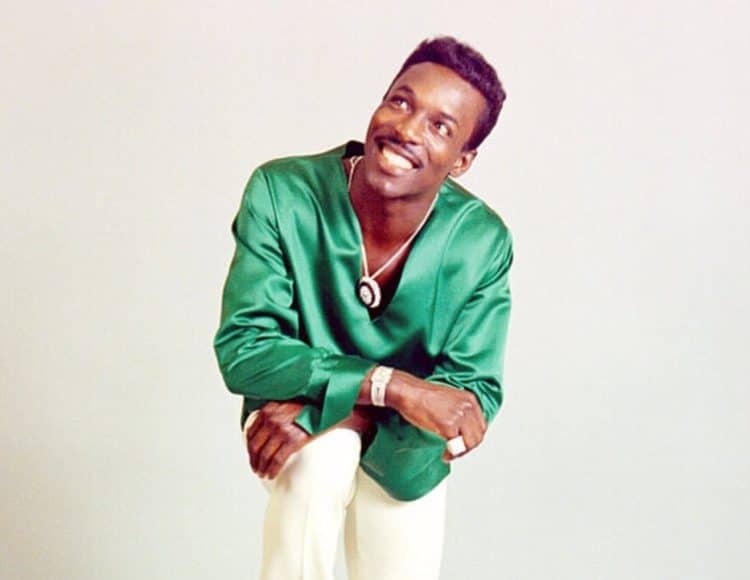Wilson Pickett, born on March 18, 1941, in Prattville, Alabama, was a pioneering American soul singer and songwriter who left an indelible mark on the music industry. Pickett’s powerful and emotive vocals, combined with his energetic stage presence, earned him the nickname “The Wicked Pickett” and established him as one of the most electrifying performers of his time.
Pickett rose to fame in the 1960s as a leading figure in the soul and R&B genre, recording a string of hits for the legendary Stax and Atlantic record labels. His dynamic and soulful voice propelled songs like “In the Midnight Hour,” “Mustang Sally,” and “Land of 1000 Dances” to the top of the charts, earning him widespread acclaim and recognition.
Pickett’s music was characterized by its raw emotion, infectious rhythm, and infectious energy, capturing the spirit of the civil rights era and resonating with audiences of all backgrounds. His influence extended beyond the realm of soul music, with artists from various genres citing him as a major inspiration.
Throughout his career, Pickett continued to deliver electrifying performances and produce timeless music that remains beloved by fans around the world. His impact on popular music is undeniable, and his legacy as a soul music pioneer continues to be celebrated to this day.
1. Fire and Water

“Fire and Water” is a song by Wilson Pickett, released in 1968 as a single and later included on his album “The Wicked Pickett.” The song was written by Pickett himself along with Steve Cropper, a renowned guitarist and songwriter known for his work with Stax Records.
“Fire and Water” is a soulful and passionate ballad that showcases Pickett’s powerful vocals and emotive delivery. The lyrics explore themes of love, desire, and the intensity of romantic relationships, using metaphors of fire and water to convey the conflicting emotions experienced by the singer.
Musically, “Fire and Water” features a driving rhythm section, soulful horn arrangements, and a memorable guitar riff courtesy of Steve Cropper. The song’s dynamic arrangement and infectious groove helped it become one of Pickett’s most beloved tracks and a staple of his live performances.
“Fire and Water” remains a classic example of Wilson Pickett’s ability to infuse soul music with raw emotion and energy. Its timeless appeal and universal themes have ensured its enduring popularity among fans of soul and R&B music, solidifying Wilson Pickett’s legacy as one of the genre’s most influential and iconic figures.
2. Sugar Sugar

“Sugar, Sugar” is a classic pop song by the fictional band The Archies, released in 1969. The song was actually performed by studio musicians and vocalists, including Ron Dante on lead vocals. It was written by Jeff Barry and Andy Kim, and produced by Jeff Barry.
“Sugar, Sugar” is a catchy and upbeat bubblegum pop song with a simple yet infectious melody. The lyrics are sweet and romantic, with the singer expressing their love and affection for someone special. The chorus, with its repetition of the word “sugar,” adds to the song’s playful and fun-loving vibe.
Upon its release, “Sugar, Sugar” became a massive commercial success, topping the charts in multiple countries, including the United States and the United Kingdom. It remains one of the best-selling singles of all time and has become a timeless classic, beloved by audiences of all ages.
Despite being performed by a fictional band, “Sugar, Sugar” has had a lasting impact on popular culture and continues to be celebrated for its catchy melody, memorable lyrics, and feel-good energy. It remains a staple of oldies radio and is often included on lists of the greatest pop songs of all time.
3. Land of 1,000 Dances

“Land of 1,000 Dances” is a classic rhythm and blues song originally recorded by Chris Kenner in 1962, but it was popularized by Wilson Pickett in 1966 with his energetic and dynamic rendition. The song has since become a staple of soul and rock music, celebrated for its infectious groove, catchy refrain, and irresistible energy.
At its core, “Land of 1,000 Dances” is driven by a lively rhythm, punctuated by a horn section and a driving drumbeat. Wilson Pickett’s impassioned vocals infuse the song with a sense of urgency and excitement as he leads listeners through a series of dance steps and exuberant chants.
The song’s chorus, with its iconic refrain of “Na na na na na na, na na na na na na na na na,” invites listeners to join in the celebration and let loose on the dance floor. Its catchy melody and call-and-response structure make it a favorite among audiences of all ages, inspiring spontaneous sing-alongs and dance parties wherever it’s played.
“Land of 1,000 Dances” has stood the test of time as a beloved classic, its infectious energy and universal appeal ensuring its place in the pantheon of great American music. From its origins in the 1960s to its continued popularity today, the song remains a joyful anthem of unity, celebration, and the timeless power of rhythm and blues.
4. Funky Broadway

“Funky Broadway” is a classic soul and rhythm and blues song originally recorded by Dyke and the Blazers in 1967. The song was later popularized by Wilson Pickett in the same year with his dynamic cover version. “Funky Broadway” is celebrated for its infectious groove, energetic vocals, and upbeat tempo, making it a staple of dance floors and party playlists.
At its core, “Funky Broadway” is driven by a funky rhythm section, including a prominent bassline and a tight drum groove. Wilson Pickett’s soulful vocals exude charisma and energy as he delivers the song’s lively lyrics, inviting listeners to get up and dance.
The song’s chorus, with its catchy refrain of “Funky Broadway, gonna take it higher now,” serves as an irresistible invitation to join in the celebration and let loose on the dance floor. Its vibrant horn arrangement and dynamic instrumentation add to the song’s exuberant vibe, creating an electrifying atmosphere that captures the spirit of 1960s soul music.
“Funky Broadway” has endured as a beloved classic, its infectious energy and timeless appeal ensuring its place in the annals of music history. From its origins in the heyday of soul music to its continued popularity today, the song remains a testament to the enduring power of rhythm and groove to uplift and inspire listeners of all generations.
5. I’m In Love

“I’m In Love” is a soulful and emotive track by Wilson Pickett, released in 1967. The song showcases Pickett’s powerful vocals and is characterized by its passionate delivery and heartfelt lyrics.
At its core, “I’m In Love” features a lush arrangement with a prominent horn section and a driving rhythm section. Pickett’s dynamic vocals convey a sense of urgency and intensity as he expresses the depth of his emotions. The song’s melody is both catchy and soul-stirring, drawing listeners in with its irresistible charm.
Lyrically, “I’m In Love” is a declaration of romantic passion and devotion. Pickett’s lyrics express the joy and exhilaration of being in love, as well as the longing and desire that come with it. The song’s chorus, with its repeated refrain of “I’m in love, yes I am,” captures the euphoria of newfound romance and the excitement of falling head over heels for someone special.
“I’m In Love” was a commercial success upon its release, reaching the top 10 on the Billboard R&B chart and solidifying Wilson Pickett’s status as one of the premier soul singers of his time. The song remains a beloved classic in Pickett’s catalog, cherished by fans for its timeless appeal and heartfelt sincerity.
6. Hey Jude

“Hey Jude” is a timeless and iconic song by The Beatles, released in 1968 as a single and later included on their album “The Beatles,” commonly known as the “White Album.” The song is celebrated for its uplifting melody, heartfelt lyrics, and memorable sing-along chorus.
At its core, “Hey Jude” features a simple yet powerful arrangement, with Paul McCartney’s soulful vocals accompanied by acoustic guitar, piano, and orchestration. The song’s slow build and swelling instrumentation create a sense of grandeur and emotional resonance that captivates listeners from the opening notes.
Lyrically, “Hey Jude” is a message of comfort and encouragement, with McCartney addressing a young boy named Jude (rumored to be John Lennon’s son, Julian) who is going through a difficult time. The song’s chorus, with its repeated refrain of “Na-na-na-na, hey Jude,” serves as a rallying cry for hope and perseverance, reminding listeners that “the movement you need is on your shoulder.”
“Hey Jude” was a commercial and critical success upon its release, topping the charts in multiple countries and becoming one of The Beatles’ most beloved and enduring songs. Its timeless appeal and universal message of love and support have ensured its lasting impact, making it a favorite among fans of all ages and a classic example of The Beatles’ unparalleled songwriting prowess.
7. Don’t Knock My Love – Pt. I

“Don’t Knock My Love – Pt. I” is a soul and funk song by Wilson Pickett, released in 1971 as a single and later included on his album “Don’t Knock My Love.” The song was written by Wilson Pickett himself along with Brad Shapiro and Linda Lyndell.
“Don’t Knock My Love – Pt. I” is characterized by its infectious groove, upbeat rhythm, and energetic horn arrangements. Pickett’s gritty and soulful vocals shine as he delivers passionate lyrics about standing up for love and refusing to let anyone criticize or undermine his relationship.
The song’s catchy chorus, with its repeated refrain of “Don’t knock my love,” adds to its infectious charm and makes it a favorite among fans of soul and funk music. The energetic instrumentation and dynamic vocal performance create a sense of joy and celebration that is impossible to resist.
“Don’t Knock My Love – Pt. I” was a commercial success, reaching the top of the charts in the United States and becoming one of Wilson Pickett’s most popular songs. Its timeless appeal and infectious energy have ensured its enduring popularity among fans of soul and funk music, solidifying Wilson Pickett’s legacy as one of the genre’s most influential and iconic figures.
8. In The Midnight Hour

“In the Midnight Hour” is a classic soul song performed by Wilson Pickett, released in 1965. The track is celebrated for its infectious groove, powerful vocals, and timeless appeal, making it a staple of soul and R&B music.
At its core, “In the Midnight Hour” features a driving rhythm section, punctuated by a horn arrangement and a catchy guitar riff. Wilson Pickett’s dynamic vocals exude charisma and energy as he delivers the song’s lyrics with passion and intensity. The song’s upbeat tempo and irresistible groove invite listeners to get up and dance, making it a favorite on dance floors and radio airwaves alike.
Lyrically, “In the Midnight Hour” is a declaration of love and longing, with Pickett expressing a desire to be with his partner “in the midnight hour.” The song’s lyrics paint a vivid picture of romance and desire, capturing the excitement and anticipation of being reunited with a loved one.
“In the Midnight Hour” was a commercial success upon its release, reaching the top of the R&B charts and solidifying Wilson Pickett’s status as one of the premier soul singers of his time. The song remains a beloved classic in Pickett’s catalog, cherished by fans for its infectious energy and timeless appeal. Its enduring popularity and universal themes continue to resonate with audiences around the world, cementing its place as a quintessential soul anthem.
9. Mustang Sally

“Mustang Sally” is a classic rhythm and blues song that was originally recorded by Mack Rice in 1965. However, it is most famously associated with Wilson Pickett, who recorded a highly successful cover version of the song in 1966.
Written by Mack Rice, “Mustang Sally” tells the story of a man urging his girlfriend, Sally, to slow down and enjoy life rather than constantly seeking thrills and excitement. The song’s catchy refrain and lively rhythm have made it a favorite among audiences for decades.
Wilson Pickett’s rendition of “Mustang Sally” is particularly notable for its energetic performance and soulful delivery. Pickett’s powerful vocals and charismatic stage presence helped propel the song to the top of the charts and solidify its status as a classic of the soul and R&B genres.
“Mustang Sally” has since been covered by numerous artists from various musical genres, and it remains a popular choice for bands and performers in live settings. Its enduring popularity and timeless appeal continue to make it a staple of playlists and radio stations around the world.
10. Engine Number 9

“Engine Number 9” is a gritty and energetic track by the American rock band, Deftones, from their debut album “Adrenaline,” released in 1995. The song is celebrated for its raw aggression, heavy guitar riffs, and intense vocal delivery, marking it as a standout in the band’s early discography.
At its core, “Engine Number 9” is driven by a pounding rhythm section and ferocious guitar work, creating a relentless and frenetic energy that grabs the listener’s attention from the outset. Chino Moreno’s powerful vocals add to the song’s intensity, with his dynamic delivery ranging from melodic crooning to aggressive shouting, adding layers of depth and emotion to the track.
Lyrically, “Engine Number 9” explores themes of frustration, rebellion, and defiance, with Moreno’s lyrics expressing a sense of disillusionment and anger towards societal norms and expectations. The song’s chorus, with its repeated refrain of “Guns! Razors! Knives!,” serves as a visceral rallying cry for those who feel marginalized or oppressed, channeling the band’s signature blend of aggression and catharsis.
“Engine Number 9” showcases Deftones’ talent for crafting hard-hitting and emotionally charged rock anthems that resonate with listeners on a visceral level. Its raw energy and confrontational lyrics have made it a favorite among fans of the band, cementing its status as a standout track in their expansive catalog.









